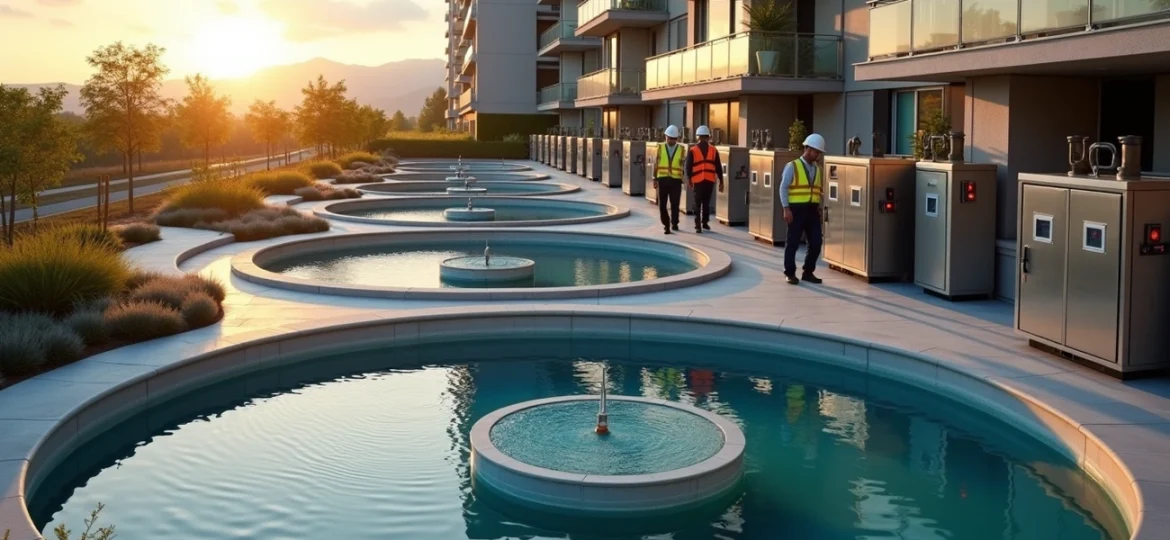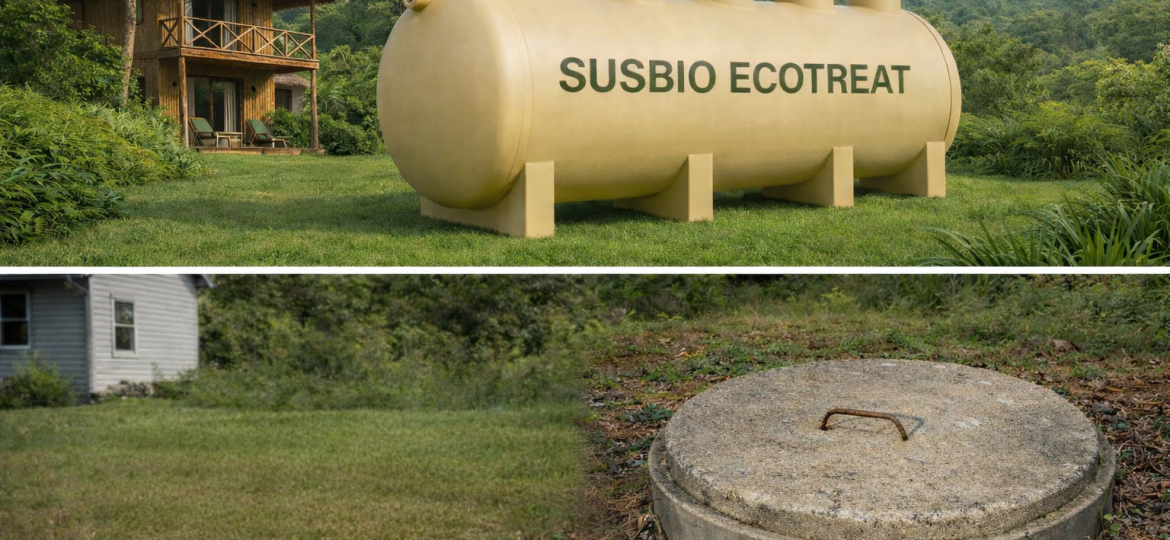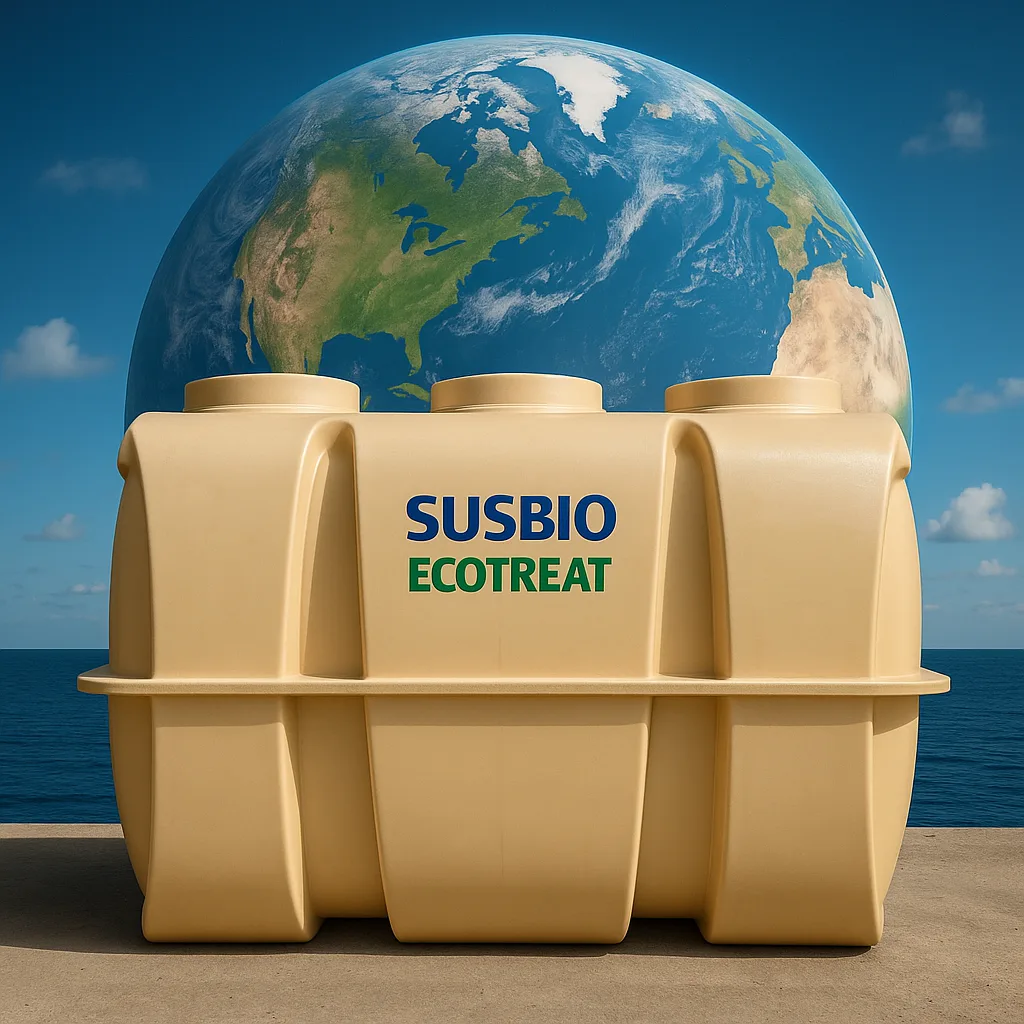Decentralized wastewater treatment systems are revolutionizing the way communities manage wastewater by treating it close to its source. Unlike centralized systems, which rely on large-scale infrastructure, decentralized systems offer a more localized, cost-effective, and sustainable approach. This method is particularly beneficial in rural and developing regions where centralized infrastructure is impractical.
What is Decentralized Wastewater Treatment?
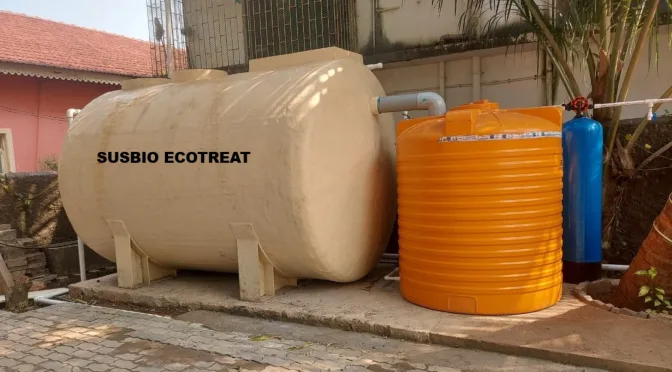
Decentralized wastewater treatment involves using smaller, modular systems to treat wastewater near its source. This approach eliminates the need for extensive pipelines and large-scale treatment plants, making it ideal for individual homes, small communities, industrial sites, and institutions. Modern decentralized systems are flexible and adaptable, ensuring efficient wastewater management in both urban and remote locations.
Benefits of Decentralized Wastewater Treatment Systems
Decentralized wastewater treatment systems offer a wide range of benefits that make them an attractive alternative to traditional centralized systems. These advantages include cost-effectiveness, environmental sustainability, flexibility, and resource recovery.
1. Cost-Effectiveness
Decentralized systems are more cost-effective than centralized systems for several reasons:
Lower infrastructure costs eliminate the need for extensive sewer networks and large-scale treatment plants, reducing the initial investment required for infrastructure development.
Reduced operational and maintenance costs result from less energy needed to operate and maintain these systems, as wastewater does not need to be transported over long distances.
2. Environmental Sustainability
Decentralized systems contribute significantly to environmental sustainability:
Minimal ecological impact is achieved by treating wastewater close to its source, reducing the risk of accidental spills and minimizing the pollution load on natural water bodies.
Water reuse is facilitated as treated water can be used for irrigation, landscaping, and industrial processes, reducing the demand for fresh water and conserving this valuable resource.
Energy efficiency is enhanced as decentralized systems consume less energy compared to centralized plants, contributing to a lower carbon footprint.
3. Flexibility and Adaptability
Decentralized systems are highly flexible and adaptable:
Scalability allows these systems to be easily scaled up or down to accommodate changes in wastewater volume, making them suitable for areas with fluctuating populations.
Customized solutions can be tailored to treat different types of wastewater, ensuring effective management in diverse settings.
Suitability for remote areas provides reliable sanitation in areas lacking centralized infrastructure, improving public health and environmental protection.
4. Resource Recovery
Decentralized systems are designed to recover valuable resources from wastewater:
Water for irrigation can be provided as treated water is used for non-potable purposes, reducing the demand for fresh water.
Nutrient recovery involves extracting nutrients that can be used as fertilizers in agriculture, reducing the need for synthetic fertilizers.
Biogas generation converts organic matter in wastewater into a renewable energy source.
5. Improved Resilience
Decentralized systems offer greater resilience compared to centralized systems:
Localized impact means any issues with decentralized systems are confined to a smaller area, reducing the risk of widespread environmental or health impacts.
Faster response to disasters allows decentralized systems to continue operating even during natural disasters or system failures, ensuring continuous wastewater treatment.
6. Faster Implementation and Reduced Regulatory Hurdles
Decentralized systems often face fewer regulatory barriers and can be implemented more quickly than centralized systems:
Streamlined permitting typically results in faster approval processes, allowing for quicker deployment.
Reduced administrative costs result from lower regulatory requirements, leading to cost savings in terms of administrative and compliance expenses.
Overall, decentralized wastewater treatment systems provide a sustainable, cost-effective, and adaptable solution for managing wastewater, making them an attractive option for communities and industries seeking efficient and environmentally friendly water management practices.
Centralized vs Decentralized Systems
Centralized systems collect wastewater from a wide area and treat it at a single large facility. While they are efficient in densely populated urban areas, they require significant infrastructure investments and can be less adaptable to changing conditions. Decentralized systems, on the other hand, provide localized solutions that are more flexible and cost-effective for smaller communities or areas with limited access to centralized infrastructure
Packaged Sewage Treatment Plants (PSTPs) and Decentralized Systems
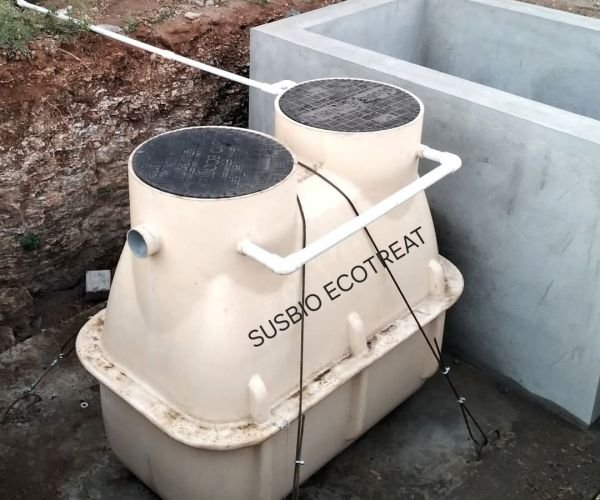
Packaged sewage treatment plants are a type of decentralized system that offers a compact, prefabricated solution. These systems are designed to be space-efficient, easy to install, and require minimal maintenance, making them suitable for both urban and rural settings. PSTPs are often used in decentralized wastewater treatment due to their modular design and high treatment efficiency.
SUSBIO ECOTREAT: An Innovative Decentralized Wastewater Solution
SUSBIO ECOTREAT is a cutting-edge decentralized STP designed for efficient and sustainable wastewater treatment. Made from high-quality fiber-reinforced plastic, it offers a durable, compact, and modular design that is ideal for residential, commercial, and industrial applications. With its dual treatment process, it ensures high-quality treated water suitable for reuse, making it a reliable solution for decentralized wastewater management.
Advanced Dimensions of Decentralized Wastewater Treatment in 2025 and Beyond
As decentralized wastewater treatment continues to evolve, several next-gen approaches are emerging to address environmental, social, and technological challenges. These innovations go far beyond basic biological treatment and offer holistic, adaptive models for the future.
1. Decentralized Systems for Emerging Contaminants (ECs)
Centralized treatment plants often struggle to remove micropollutants such as pharmaceuticals, PFAS, hormones, and personal care products. Decentralized setups allow site-specific upgrades that enhance tertiary treatment through:
Advanced Oxidation Processes (AOPs)
Biochar or activated carbon filtration
Nano-membrane retrofits for ultrafiltration
This modular flexibility makes decentralized systems a strong line of defense against modern trace contaminants.
2. Behavioral & Demand-Side Optimization
Behavioral strategies play a crucial role in boosting system efficiency and reducing treatment loads. Proven approaches include:
Eliminating corrosive chemical detergents
Promoting water budgeting (e.g., 70 L/day/person)
Separating greywater and blackwater at the source
In regions where these strategies are applied, STP overflow incidents have dropped by 20–30% thanks to community education and proactive demand management.
3. Indigenous and Low-Tech Approaches
Traditional, eco-friendly treatment techniques are making a comeback in decentralized models. Examples include:
Bamboo-based biofilters in the Northeast of India
Cow dung-based microbial beds used in rural Maharashtra
These methods are low-cost, low-carbon, and attractive for CSR initiatives, eco-tourism projects, and sustainable village development.
4. Fire-Resistant and Climate-Proof Designs
Decentralized systems are being climate-hardened using innovations such as:
Below-grade, fire-proofed STPs designed for wildfire-prone regions like Australia and California
Elevated DEWATS units in flood-prone and cyclone-vulnerable areas such as Kerala and the Sunderbans
Such resilience ensures uninterrupted sanitation even during extreme weather events.
5. Decentralization in Fragile and Conflict Zones
In disaster-hit or conflict-affected areas, decentralized systems have proven invaluable. Solutions like WASHPods and Biobox units are deployed by humanitarian organizations in regions such as Yemen, Ukraine, and Sub-Saharan Africa. These mobile modular STPs deliver essential sanitation services during crises and support progress toward global clean water goals.
6. Decentralized Phytoremediation Units
Floating plant beds are gaining traction as natural polishing tools for treated water. Plants like vetiver, duckweed, and pistia help remove:
Heavy metals
Nitrates and phosphates
These systems are ideal for schools, colleges, and rural clusters, offering a nature-based solution for final water treatment before discharge or reuse.
7. GIS and AI-Powered Network Planning
Urban planners and municipalities are increasingly adopting GIS and AI tools to:
Identify ideal cluster points for decentralized STPs
Predict future wastewater volumes based on demographic growth
Automate desludging and logistics through predictive analytics
A successful pilot in Bengaluru is integrating wastewater mapping with BESCOM zones for smarter infrastructure rollout.
8. Zero-Power Bio-Digestion for Off-Grid Villages
Zero-energy biogas digesters operate entirely without electricity, relying on microbial anaerobic breakdown of organic matter. These systems are especially suitable for:
Remote tribal villages in Chhattisgarh and Jharkhand
Rural zones along the Nepal and Bangladesh borders
They offer sustainable, off-grid sanitation with the added benefit of clean biogas generation.
9. Microgrid Integration and the Water-Energy Nexus
Hybrid setups combining solar, biogas, and backup storage are powering the next generation of decentralized treatment plants. For example:
Biogas is used to run aerators or thermal systems
Solar energy powers pumps and IoT-based sensors
These systems support Net Zero ambitions and are increasingly popular among ESG-conscious developers and planners.
FAQs
1. How does decentralized wastewater treatment differ from centralized treatment?
Decentralized wastewater treatment processes wastewater near its source, reducing infrastructure costs and allowing for localized water reuse, whereas centralized systems collect and treat wastewater at large plants.
2. What are the key benefits of decentralized wastewater treatment?
Key benefits include cost savings, environmental sustainability, resource recovery, and improved sanitation for remote areas.
3. Is SUSBIO ECOTREAT suitable for small communities?
Yes, SUSBIO ECOTREAT is designed to be scalable and adaptable, making it an excellent choice for small communities, residential complexes, and industrial sites.
4. Can decentralized wastewater systems support water reuse?
Yes, treated water from decentralized systems can be reused for irrigation, landscaping, and industrial processes, reducing water wastage.
5. What makes SUSBIO ECOTREAT a better choice than traditional STPs?
SUSBIO ECOTREAT is prefabricated, energy-efficient, and offers a compact design with high structural durability, making it an advanced solution for wastewater treatment.
Conclusion
Decentralized wastewater treatment is a sustainable and cost-effective solution for managing wastewater efficiently. By integrating modern STPs with decentralized systems, communities and industries can achieve better sanitation, environmental protection, and long-term economic benefits. The adaptability, scalability, and resource efficiency of decentralized STPs make them the preferred choice for both urban and rural settings. Investing in decentralized solutions is a step towards a cleaner, greener future in wastewater management.



